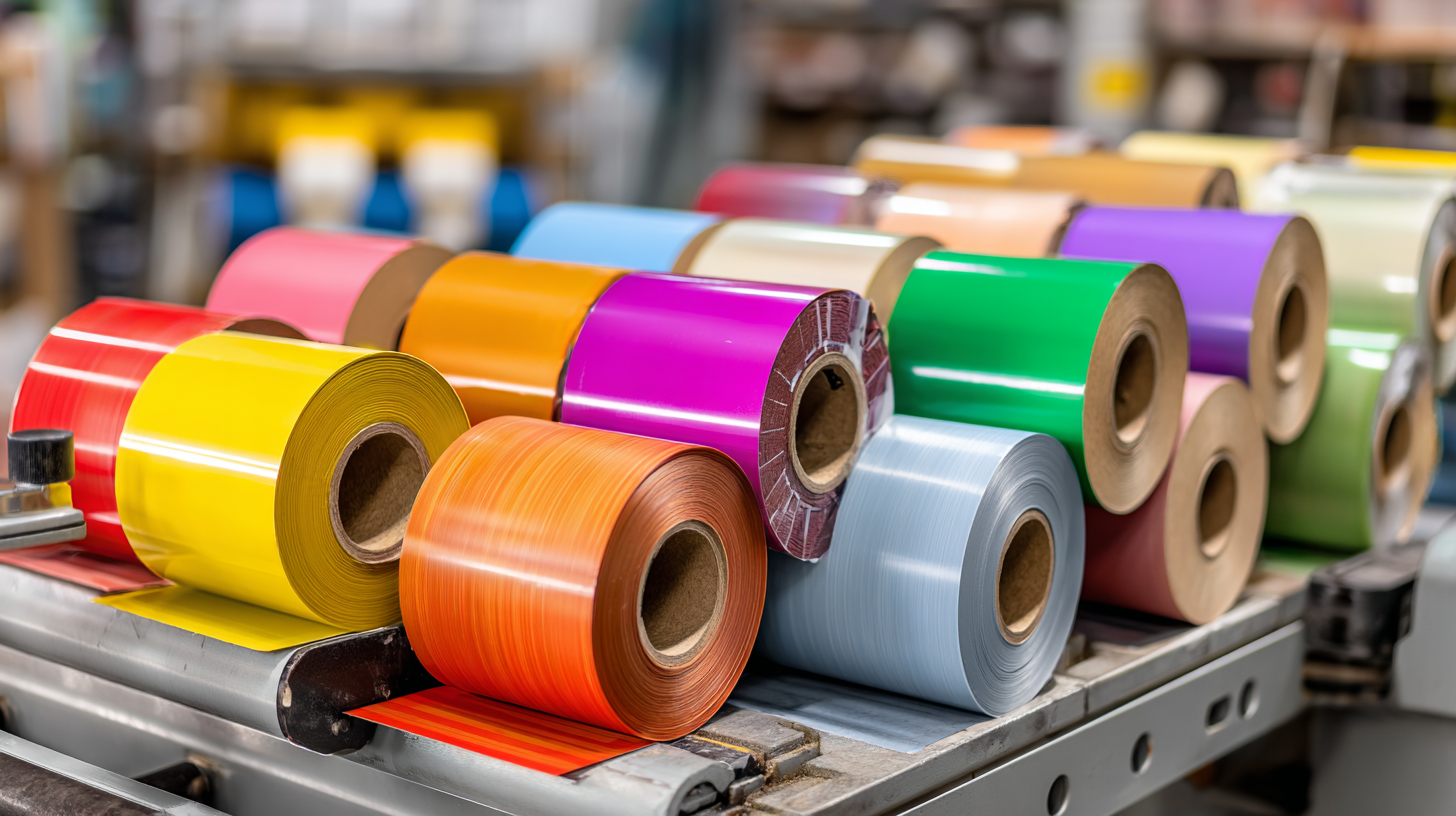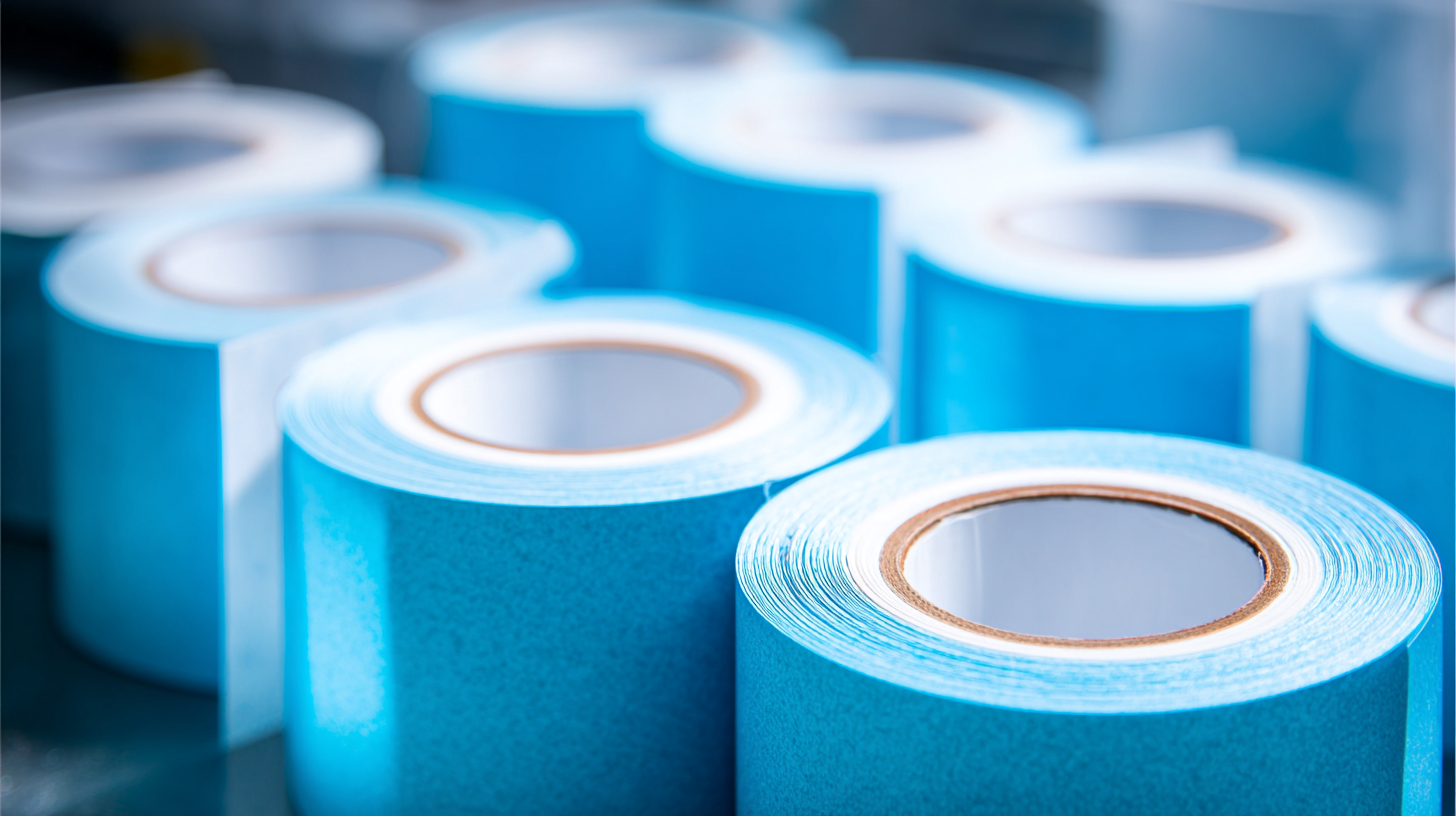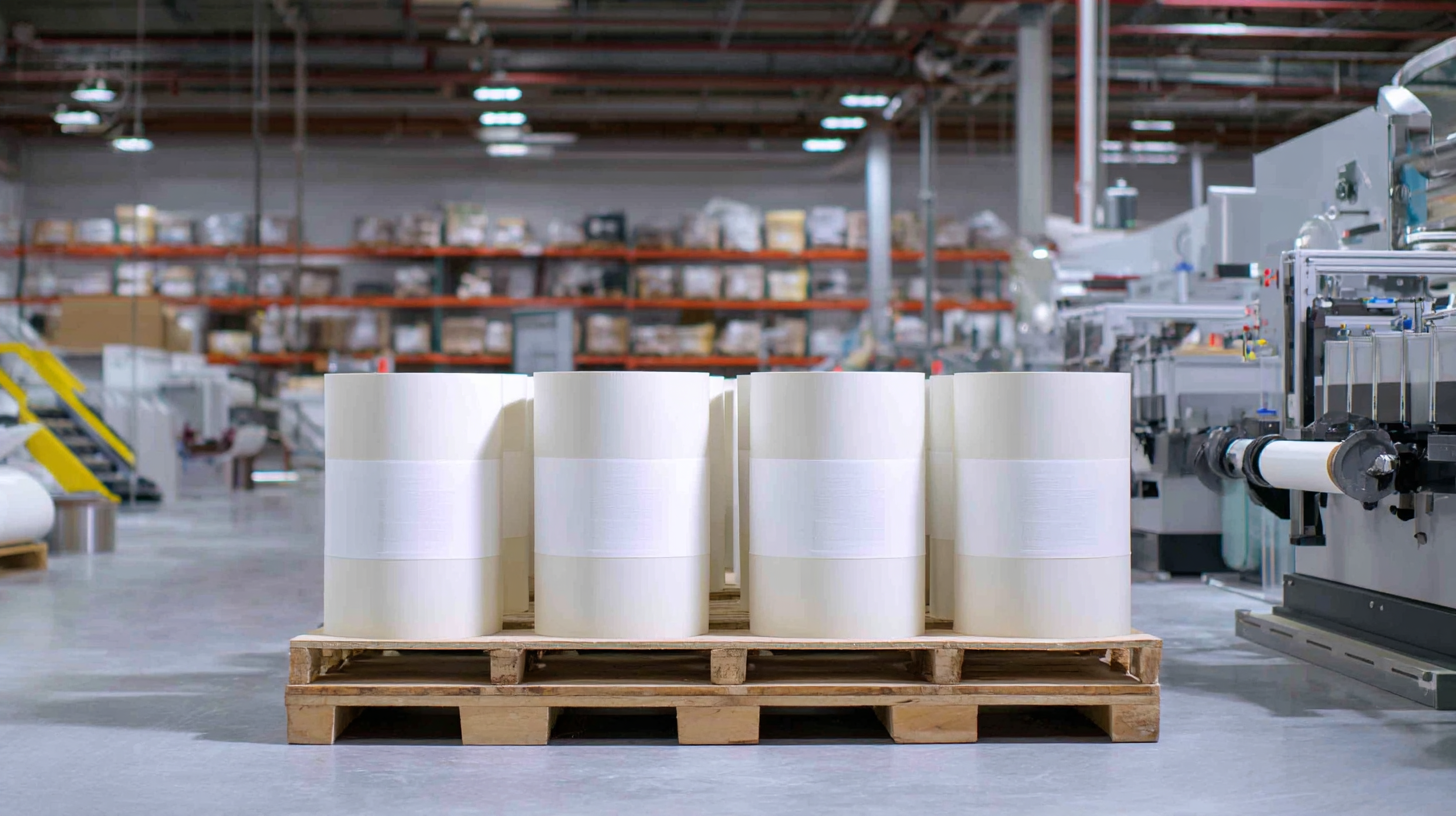How to Identify Quality Manufacturers for the Best Pressure Sensitive Labels
In the fast-evolving landscape of packaging solutions, Pressure Sensitive Labels (PSLs) have emerged as a critical component for businesses aiming to enhance product visibility and compliance across diverse sectors, including food, pharmaceuticals, and consumer goods. According to a recent market report by Smithers Pira, the global pressure-sensitive label market is projected to reach $45 billion by 2025, reflecting a robust annual growth rate of 5.3%. This surge in demand underscores the importance of identifying quality manufacturers capable of delivering innovative and reliable labeling solutions. Selecting the right partner can significantly impact product presentation and supply chain efficiency, making it essential for businesses to navigate the selection process strategically. By understanding key criteria and leveraging expert insights, companies can ensure they collaborate with manufacturers that uphold high standards of quality and sustainability in their PSL offerings.

Factors to Consider When Choosing Pressure Sensitive Label Manufacturers
When selecting manufacturers for pressure sensitive labels, several crucial factors must be taken into account to ensure product quality and market alignment. One paramount consideration is the manufacturer's commitment to sustainability, as consumer preferences increasingly lean toward environmentally responsible products. A recent study by McKinsey and NielsenIQ highlights that products representing such values experience significant sales growth, underlining the necessity for manufacturers to adopt sustainable practices.

Another important aspect is the manufacturer's industry experience and technological capabilities. The global pressure sensitive labels market is projected to showcase a compound annual growth rate (CAGR) of over 6.5% from 2025 to 2032, expected to exceed USD 76.57 billion. This growth indicates a rising demand for innovative labeling solutions, necessitating manufacturers with robust research and development capabilities. Furthermore, understanding the manufacturer’s production capacity and quality control processes is essential to ensure that they can meet the evolving demands of the market while maintaining high standards.
The Importance of Quality Standards in Label Production
When it comes to producing pressure-sensitive labels, adhering to quality standards is paramount. Quality standards not only ensure that the labels meet specific performance criteria, but they also confirm that manufacturers are committed to providing reliable and durable products. Labels that fail to meet these standards can lead to numerous issues, including poor adhesion, fading, or even chemical reactions that compromise the label's integrity. This not only affects the visual appeal of the product but can also cause significant financial losses for businesses that rely on labels for branding and information.
A manufacturer’s adherence to internationally recognized quality standards, such as ISO 9001, serves as an indicator of their operational excellence. Companies that invest in quality assurance processes are more likely to produce labels that withstand environmental challenges, thus ensuring consistent performance over time. Additionally, rigorous quality checks and testing during production can help identify and mitigate potential issues before the labels reach the market. By prioritizing quality standards, businesses can confidently choose manufacturers that contribute to their overall brand reputation and product reliability, ultimately fostering trust with consumers.
Quality Standards in Pressure Sensitive Labels Production
How to Assess a Manufacturer’s Certifications and Compliance
When selecting a manufacturer for pressure sensitive labels, assessing their certifications and compliance is crucial. According to a recent study by the Pressure Sensitive Tape Council (PSTC), over 70% of label-related defects stem from subpar manufacturing practices. Thus, understanding a manufacturer's adherence to industry standards can significantly mitigate risks linked to quality inconsistencies.
Key certifications such as ISO 9001 and ISO 14001 demonstrate a manufacturer's commitment to quality management and environmental responsibility, respectively. A report published by the Label Manufacturers Association states that manufacturers with these certifications enjoy a
30% reduction in customer complaints and an increase in repeat business. Additionally, compliance with regulations such as FDA for food labeling or RoHS for electronics is essential, indicating that a manufacturer not only meets quality standards but also adheres to safety and regulatory norms that protect your brand's reputation.
Thoroughly vetting manufacturers through their certifications ensures that you partner with a company that prioritizes excellence, reliability, and compliance, ultimately leading to superior pressure sensitive labels that enhance your products' marketability.
Evaluating Manufacturer Reputation Through Customer Reviews
When searching for quality manufacturers for pressure sensitive labels, evaluating their reputation through customer reviews is a crucial step. According to a recent report by the Label Industry Global Report, approximately 70% of label buyers consider customer feedback to be a key factor in their purchasing decisions. This statistic highlights the importance of understanding how a manufacturer is perceived by its clients. Platforms such as Trustpilot and Google Reviews can provide valuable insights into the experiences of other businesses, helping potential buyers gauge reliability, product quality, and customer service.

Moreover, the importance of reputation is underlined by a study from the Packaging Innovations Association, which found that companies with strong positive reviews can charge up to 20% more for their products compared to those with negative feedback. This variance not only reflects customer trust but also influences market competitiveness. Engaging with past client testimonials and case studies can reveal important aspects of a manufacturer's operational capabilities and commitment to quality. By taking the time to assess these reviews, businesses can make informed decisions, ultimately leading to more successful partnerships in their label production requirements.
Strategies for Effective Communication and Collaboration with Manufacturers
Effective communication and collaboration with manufacturers is crucial to ensuring the production of high-quality pressure-sensitive labels. According to a report by Smithers Pira, the global pressure-sensitive label market is expected to reach $54 billion by 2024, emphasizing the increasing competition among manufacturers. Establishing clear lines of communication can help brands articulate their specific needs, preferences, and quality standards, which are vital due to the diverse range of materials and technologies available in label manufacturing.
One effective strategy is to engage in regular meetings and updates throughout the production process. A survey by the Association for Packaging and Processing Technologies revealed that 62% of companies that maintained consistent communication with their suppliers reported higher satisfaction with the quality of their products. Utilizing digital tools for project management and sharing feedback can facilitate a more streamlined workflow, allowing manufacturers to quickly adapt to any changes in design or requirements. Furthermore, fostering a collaborative environment where both parties can share insights will lead to improved innovations, ensuring that the labels produced not only meet industry standards but also resonate with consumers.
